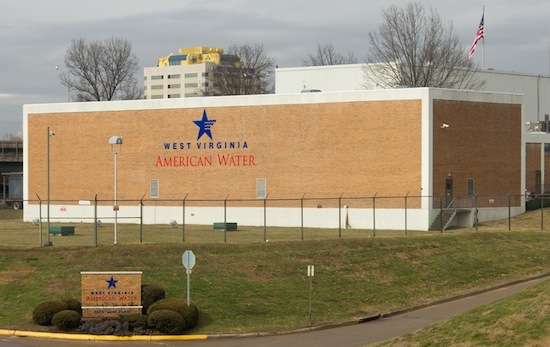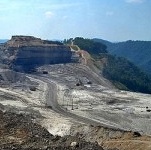All Posts
Hannah Wiegard: Binge-watching “Doctor Who” and Bettering Virginia’s Energy Options

I joined Appalachian Voices to help steer Appalachian Power and Dominion Virginia Power toward clean energy. Over the recent winter break, I got a jump on this massive undertaking in what may seem an unusual way: by becoming utterly engrossed in a “Doctor Who” marathon. I maintain that it was time well-spent in the fight for clean energy sources and efficiency for the Old Dominion.
The West Virginia Chemical Spill: A Warning for North Carolina

There is a lesson in West Virginia’s water crisis for North Carolina policymakers and regulatory agencies akin to the saying that those who do not learn from history are doomed to repeat it. If you look at the changes to and by the N.C. Department of Environment and Natural Resources in 2013 and the path ahead in 2014, the General Assembly seems resolved to run headlong down a shortsighted path that will lead to the same inevitable consequences.
A Successful First Energy Savings Session in Sugar Grove, N.C.

On Jan. 9, Watauga County residents left the Sugar Grove Community Center equipped and inspired to make their homes more energy efficient. We’re excited to continue hosting Energy Savings Information Sessions throughout western North Carolina and East Tennessee.
Who Owns West Virginia’s Water? A Cautionary Tale

The paper trail of West Virginia Public Service Commission filings document the dramatic expansion of American Water Company’s network over the past two decades, and why so many people in this water-rich state depend on a single, privately-owned treatment system and distribution network that sprawls across nine counties for their supply of drinking water.
Will West Virginia Politicians Hit “Snooze” on Another Wake-Up Call?

West Virginia’s state and federal leadership fight tooth-and-nail against new rules and the enforcement of existing laws that protect our air, water and health because the earnings of companies bankrolling their political careers might be affected. Now, facing another crisis, we’re rightfully wondering: How many wake-up calls do West Virginia’s elected leaders get?
Former Coal Regulator Shows How Little He Knows About Coal Regulation

More than 2,000 miles of Appalachian streams have been buried or poisoned by the valley fills associated with mountaintop removal mining. Yet, despite touting his credentials as a former coal regulator, Rep. Kevin Cramer (R-ND) believes that current stream protections are sufficient and dumping mining waste into streams is illegal.
McAuliffe Lauds Carbon Capture Technology, But Coal’s Impacts Go Beyond CO2 Pollution

Virginia Governor-elect Terry McAuliffe claims that “we need to build on the assets we have” by using carbon capture technology. But carbon pollution isn’t the only measure of coal’s impact on Virginia. Continuing to mine and burn coal will still cause serious problems: more destructive mountaintop removal, toxic mining waste, air and water pollution from power plants, all while southwestern Virginia continues to feel the worst effects of deferring a cleaner energy future.
The Gap Between Environmental Protection and DENR’s Skewed Self-perception

With the management of the N.C. Department of Environment and Natural Resources’ penchant for self-praise, the future must seem pretty bright. But beyond the narrative contrived in media releases, public criticism and displays of distrust in the agency’s direction have become commonplace in North Carolina’s largest newspapers and media outlets. And it’s making North Carolina’s environmental community stronger.
27 Visionaries: Stories of Regional Changemakers

When the battlefield on Blair Mountain was removed from the National Historic Register in 2009, West Virginia resident Doug Estepp was outraged. As the site of a landmark uprising of coal miners in 1921, Estepp reasoned that tourism centered around the state’s compelling history could be a source of sustainable economic diversification and also help raise awareness of the region’s stories and struggles. After Blair Mountain was delisted, Estepp decided that it was time to make that vision a reality.
For Patriot Coal, Ending Mountaintop Removal is a “Win-Win”

A little more than a year ago, Patriot Coal announced it would phase out its use of mountaintop removal coal mining in Appalachia as part of a settlement with environmental groups over selenium pollution. Taken at face value, statements made at that time by Patriot’s CEO Bennett Hatfield held promise that the movement against mountaintop removal, focused on exposing the poor economics as well as the irreversible environmental impacts of the destructive practice, had reached a pivotal turning point.
